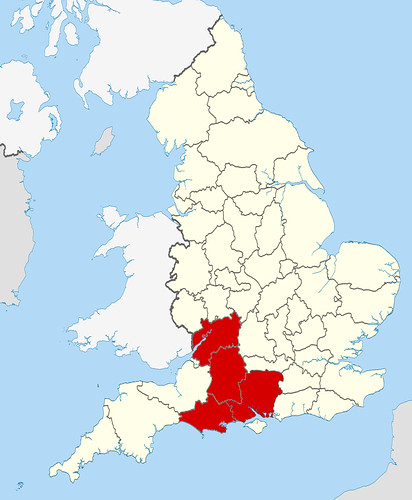
Up until the early 19th century, thatching was the only style of roofing available for most people living in the English countryside.
From about 1820, Welsh slate started to replace thatch as the roofing material of choice and the canals and later railways made it easier and cheaper to transport to remoter areas of England.
By the late 1800s, thatch became a sign of poverty as mechanization replaced agricultural jobs and people migrated to cities to work in factories.
Over the last 30 years, there has been a resurgence of interest in historic building preservation and thatch is now a symbol of wealth.
Join us as we take a look at some beautiful thatched cottages from the counties of Hampshire, Wiltshire, Dorset, and Gloucestershire.
Hampshire

Hampshire is the 3rd largest “shire” county in the UK. It has two national parks: the New Forest and the South Downs.
William the Conqueror created the New Forest as his personal hunting ground, evicting many poor peasant families from their homes in the process.
Two of his sons died in the forest, including his successor, King William II (William Rufus), who was struck by an arrow in mysterious circumstances. According to local folklore, this was an ‘act of God’ as punishment for his mistreatment of the area’s inhabitants.
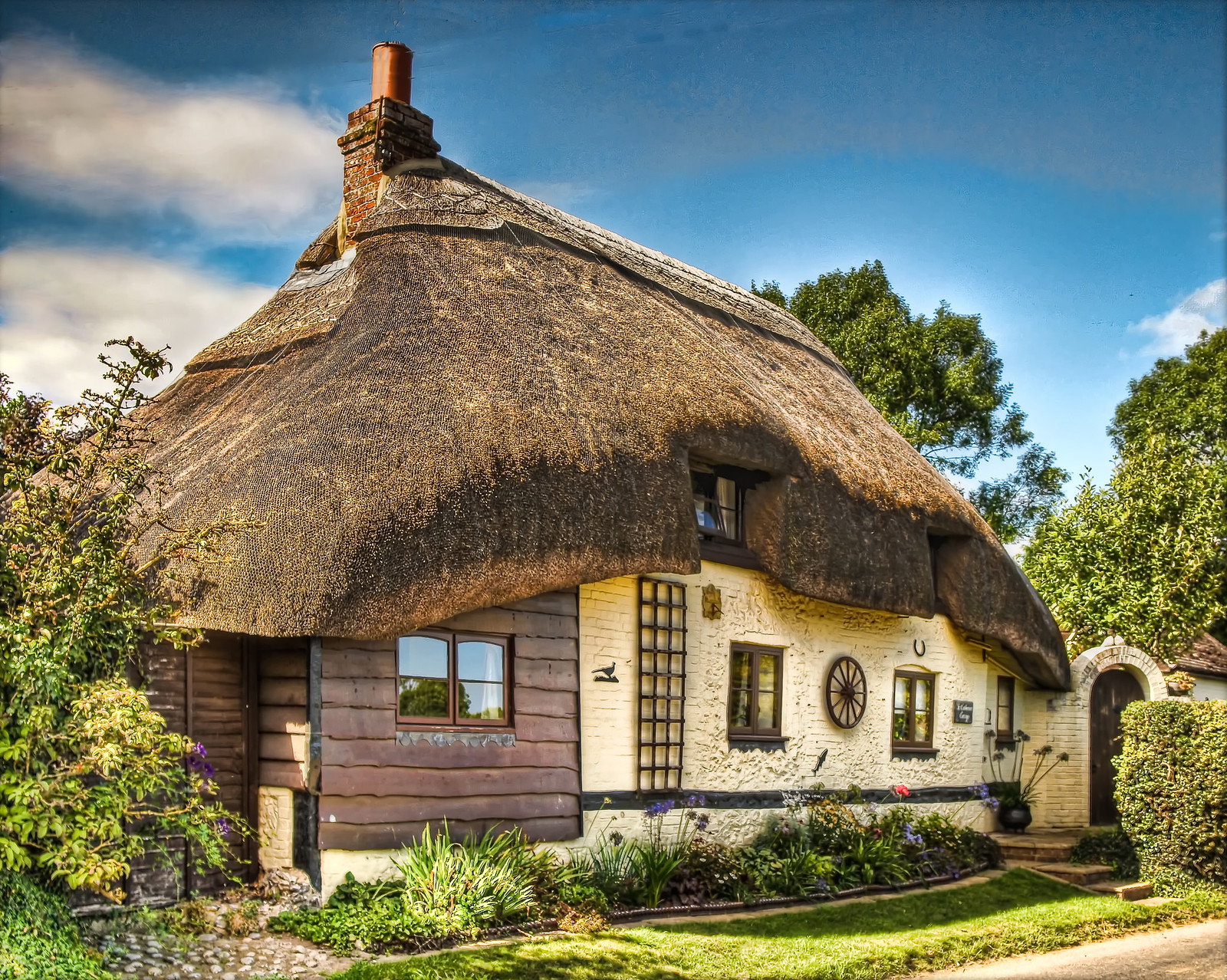
You can visit the place where the king fell, called the Rufus Stone. The inscription reads:
“Here stood the oak tree, on which an arrow shot by Sir Walter Tyrrell at a stag, glanced and struck King William the Second, surnamed Rufus, on the breast, of which he instantly died, on the second day of August, anno 1100.”
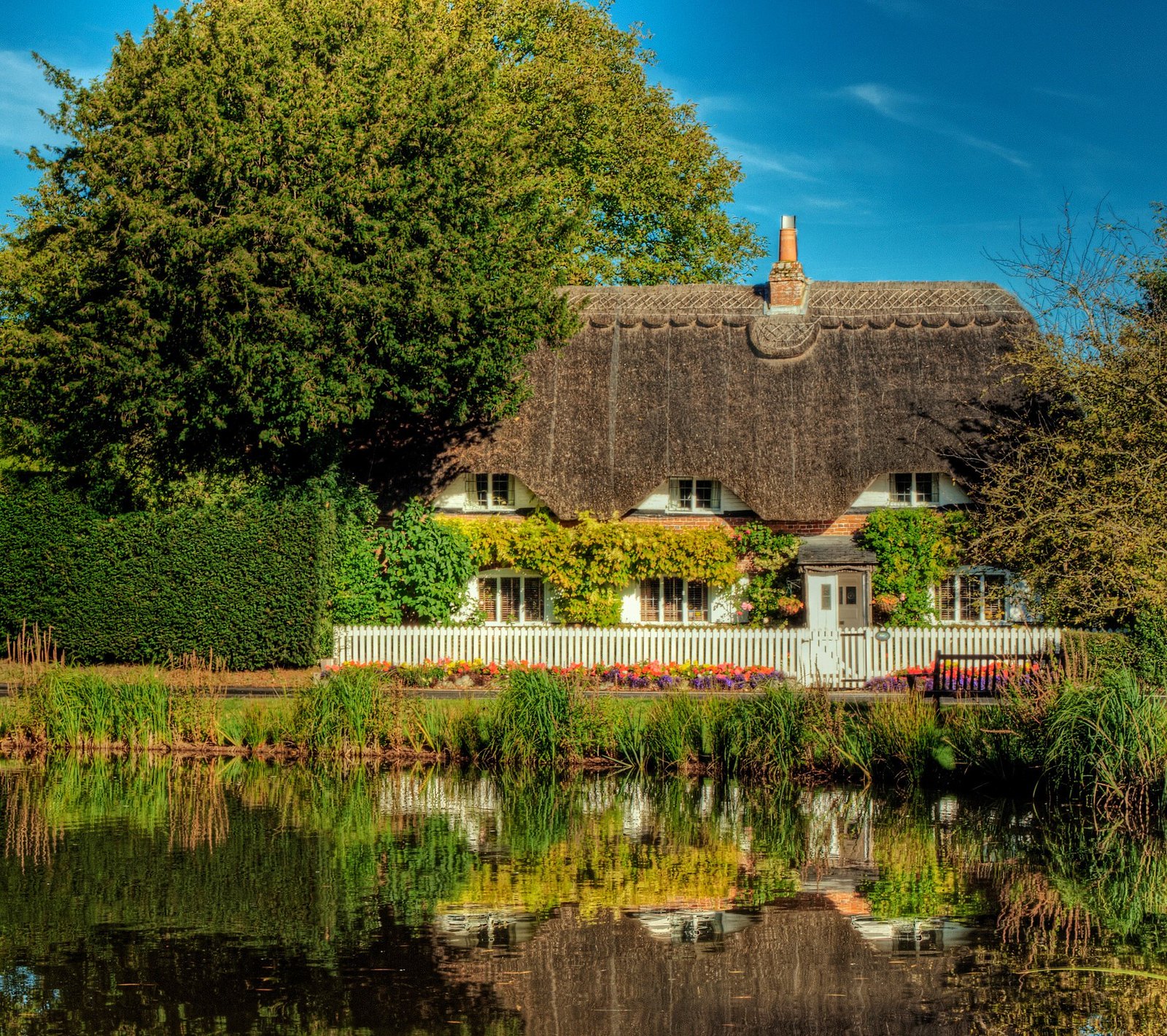
Hampshire is famous for other other reasons too. Jane Austen and Charles Dickens both grew up here, as did one of the most prominent figures of the industrial revolution—Isambard Kingdom Brunel.
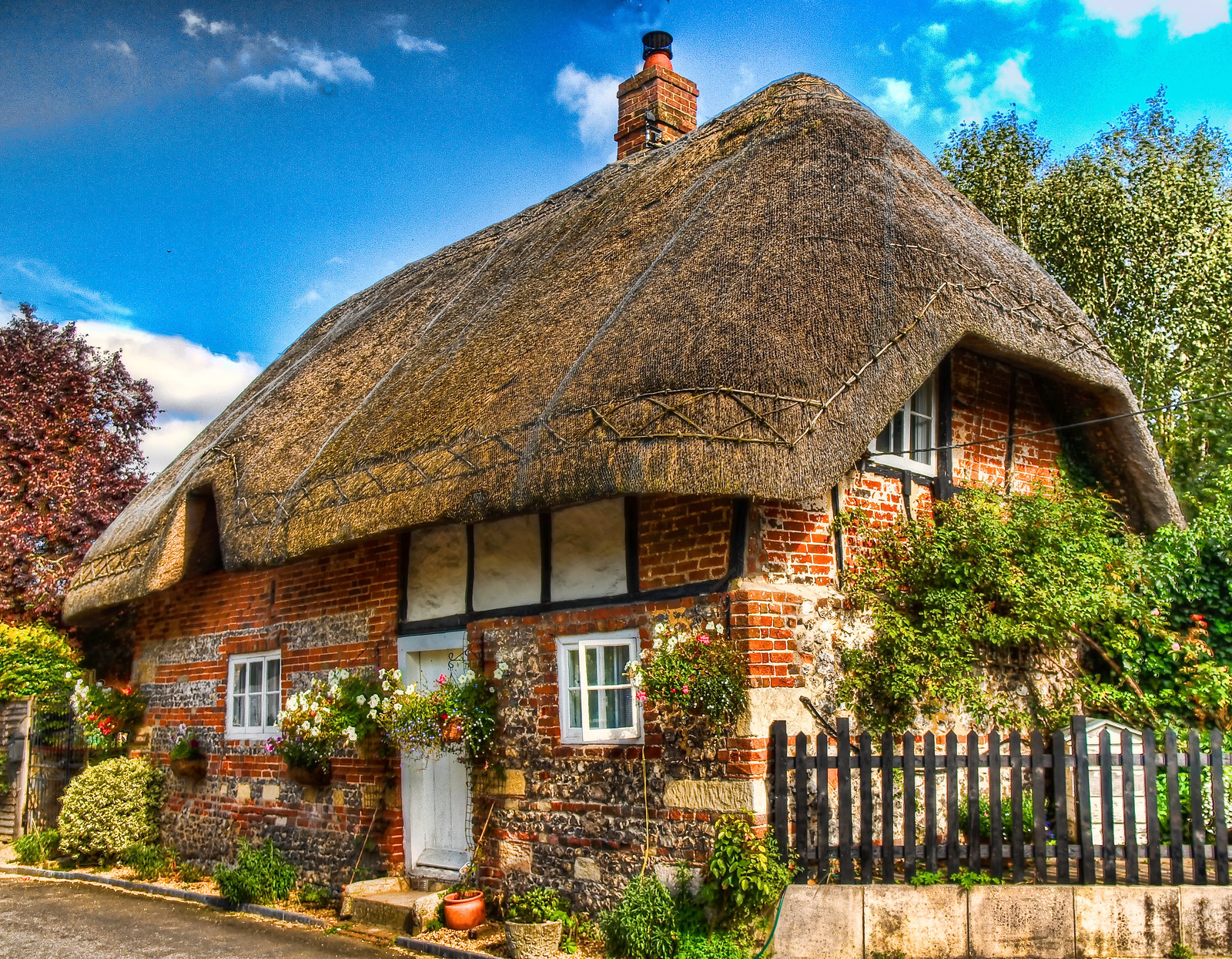
If you reside in New Hampshire, or Southampton or Portsmouth, Virginia, in the United States, you may be interested to know that some of the earliest Jamestown settlers hailed from Hampshire, England and named places after their old English home towns of Southampton and Portsmouth.
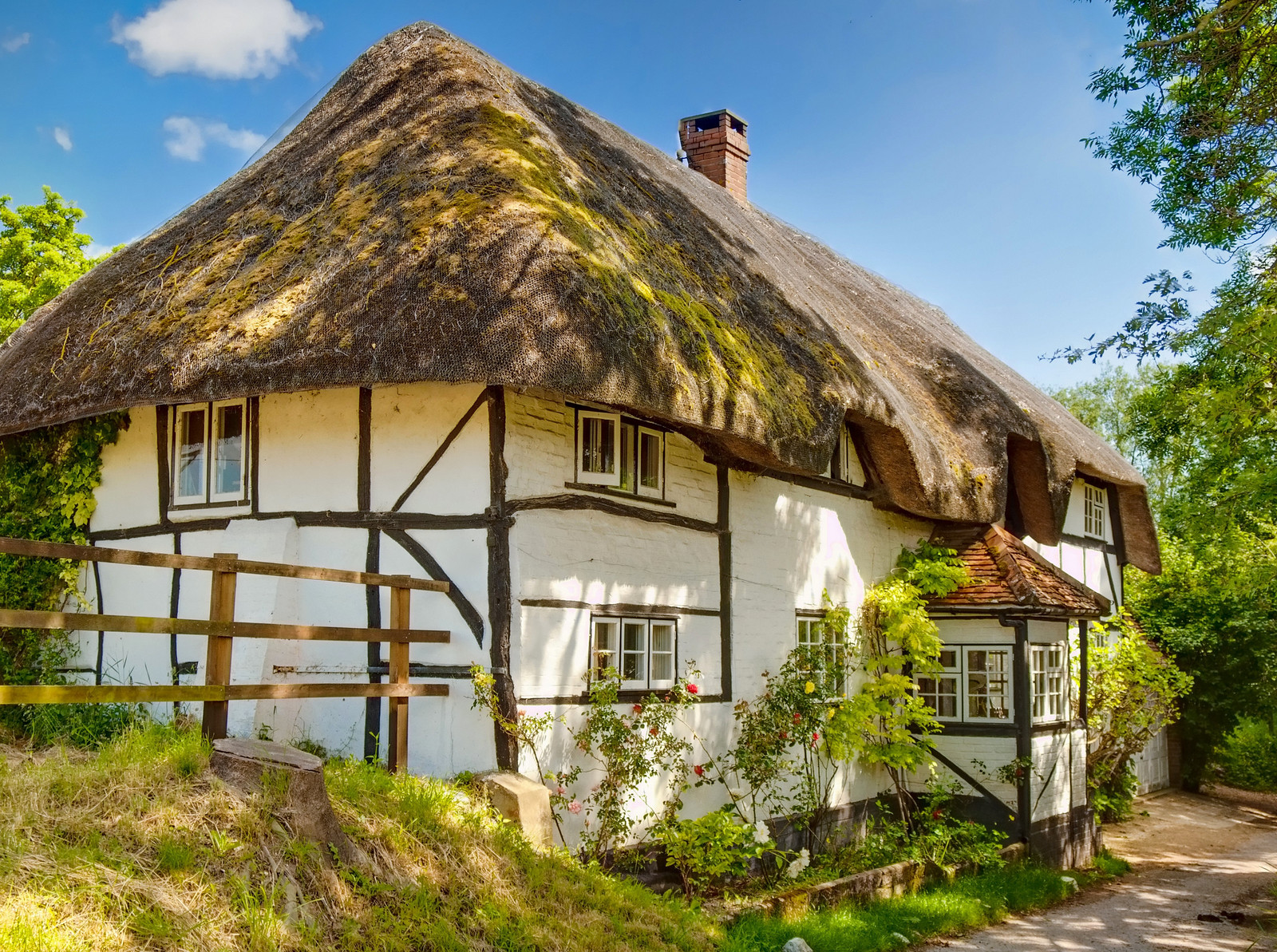
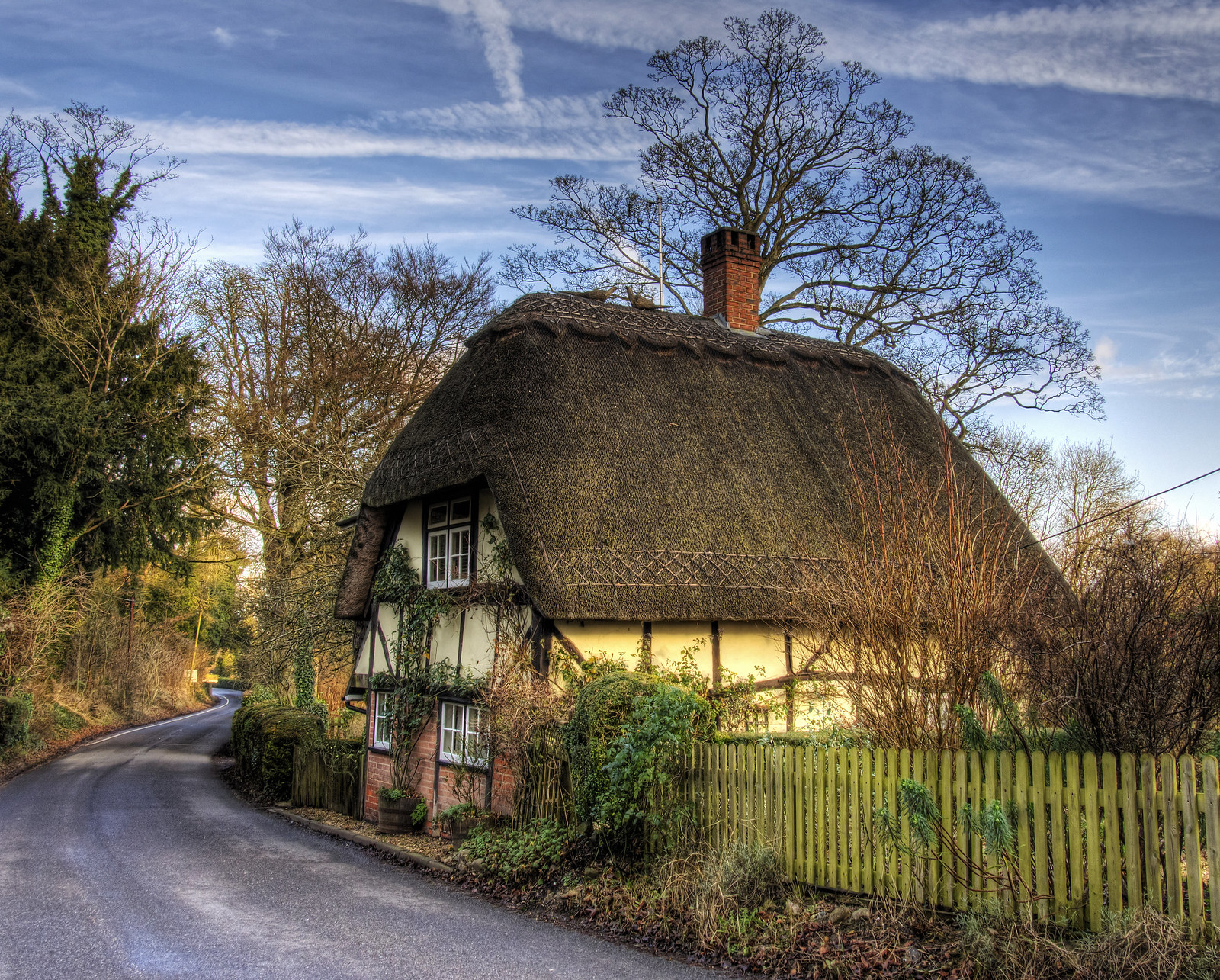
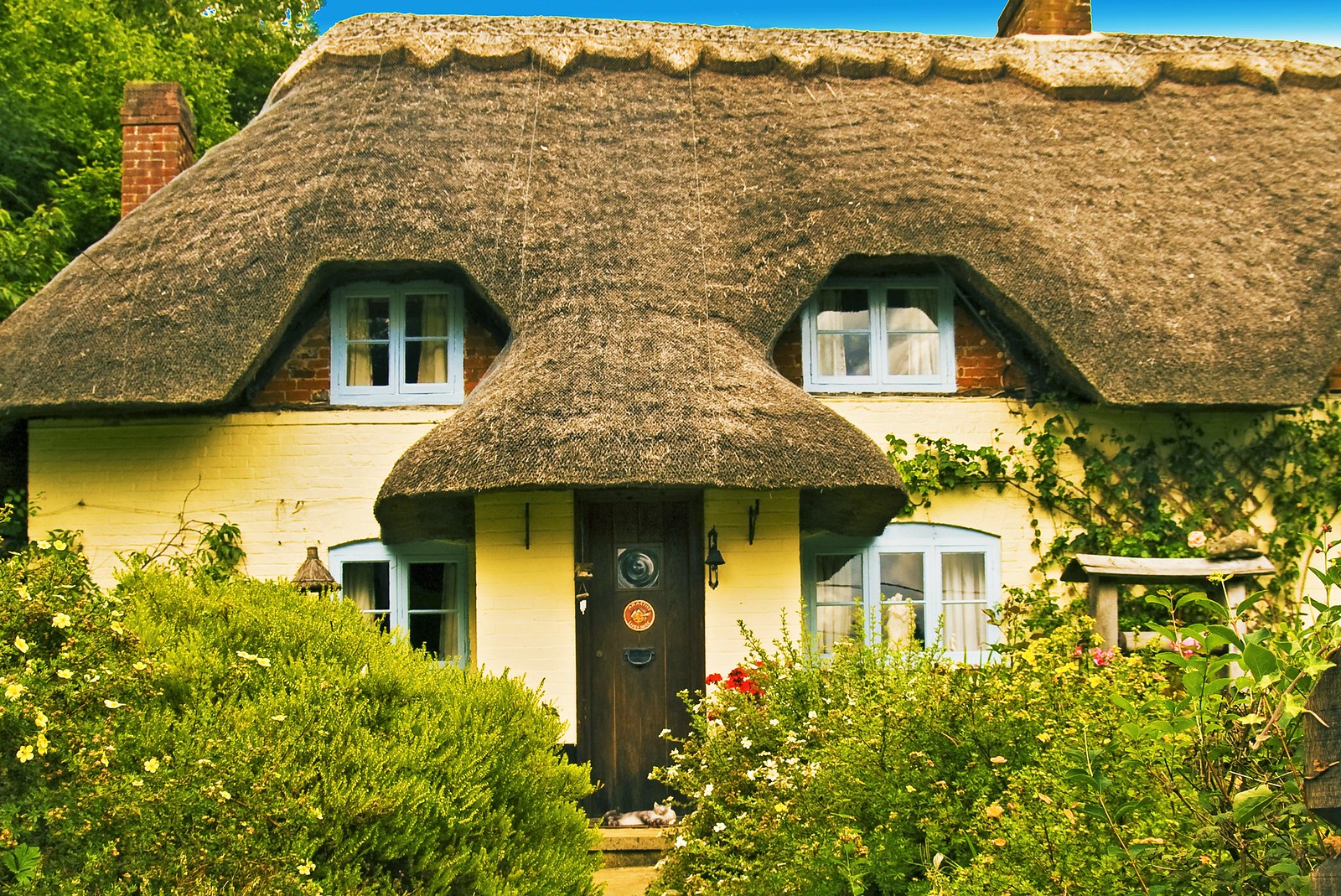
Wiltshire
The home of Stonehenge, the medieval Salisbury Cathedral, and Longleat and Stourhead country houses, Wiltshire has much to offer residents and tourists alike.
Largely agricultural, 390 mills, and even vineyards, are mentioned in the Domesday Book—William the Conqueror’s “Great Survey” in 1086.
“While spending the Christmas time of 1085 in Gloucester, William had deep speech with his counsellors and sent men all over England to each shire to find out what or how much each landholder had in land and livestock and what it was worth.”
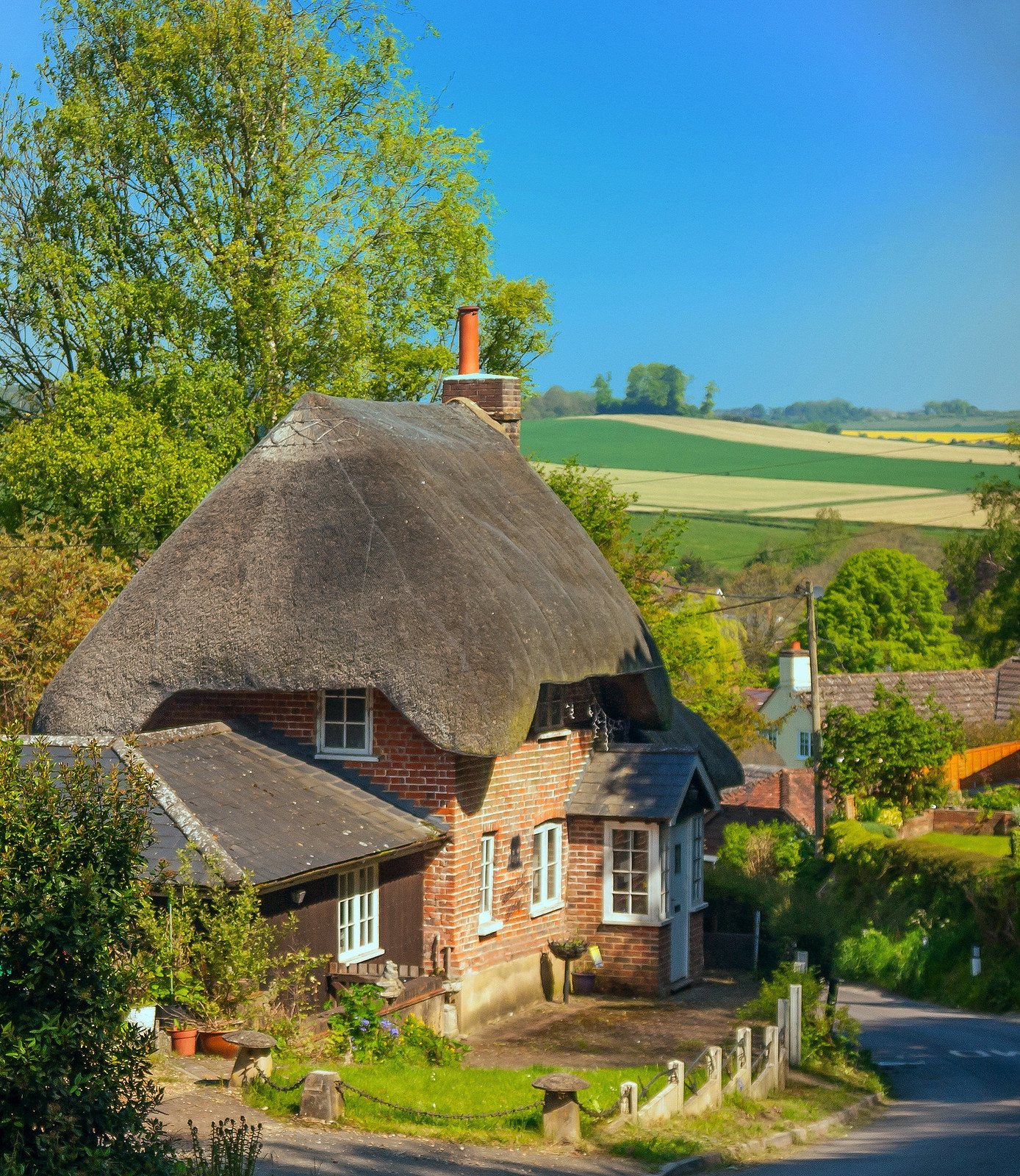
Prized for its wool in the 13th and 14th centuries, the Cistercian monasteries of Wiltshire supplied Florentine and Flemish markets.
Two thirds of the county lies on chalk, and has several white horses carved into the Wiltshire hillsides.
Claimed to commemorate King Alfred, who was born in the Vale of White Horse, according to legend, the first Anglo-Saxon invaders into England fought under a white horse standard.
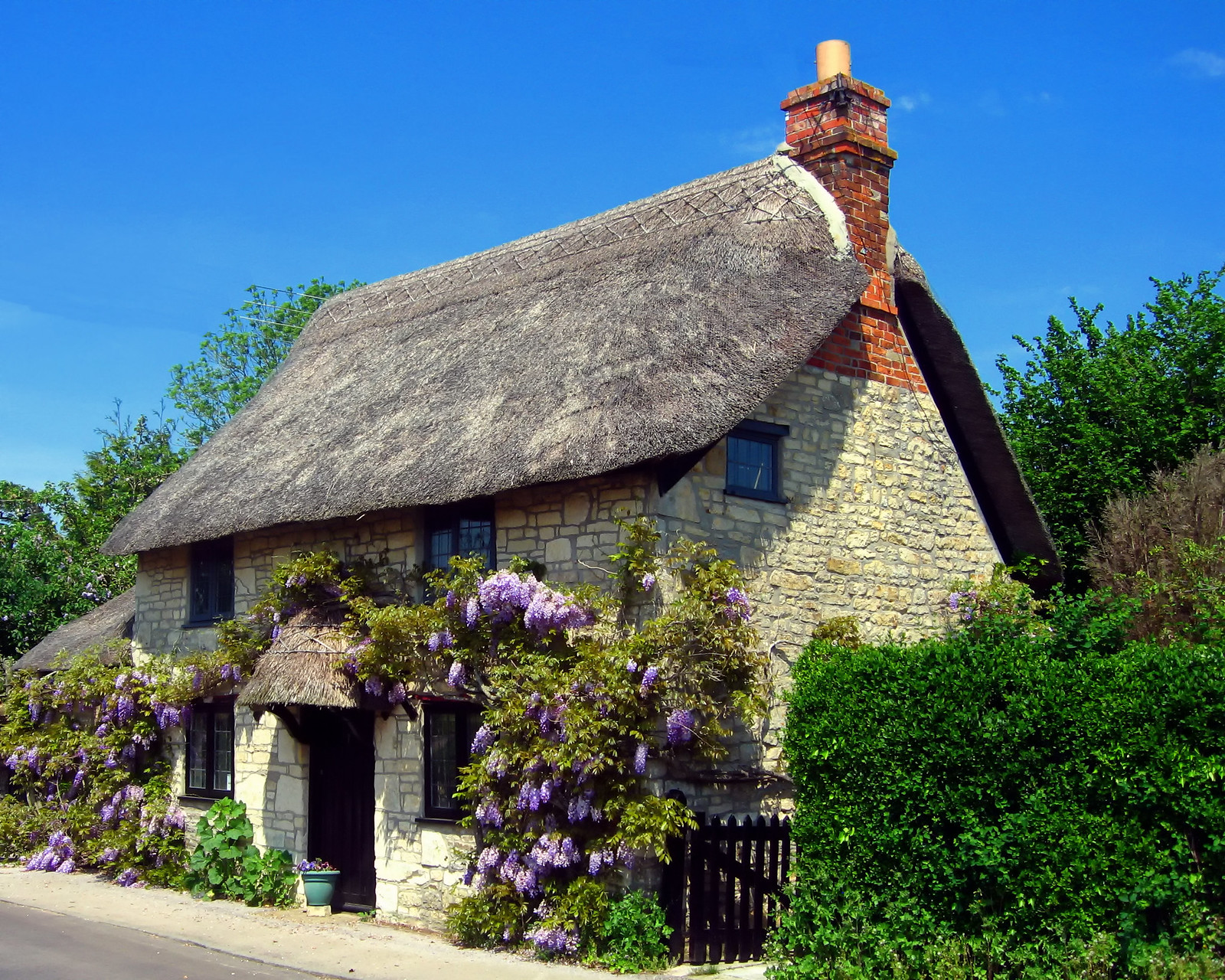
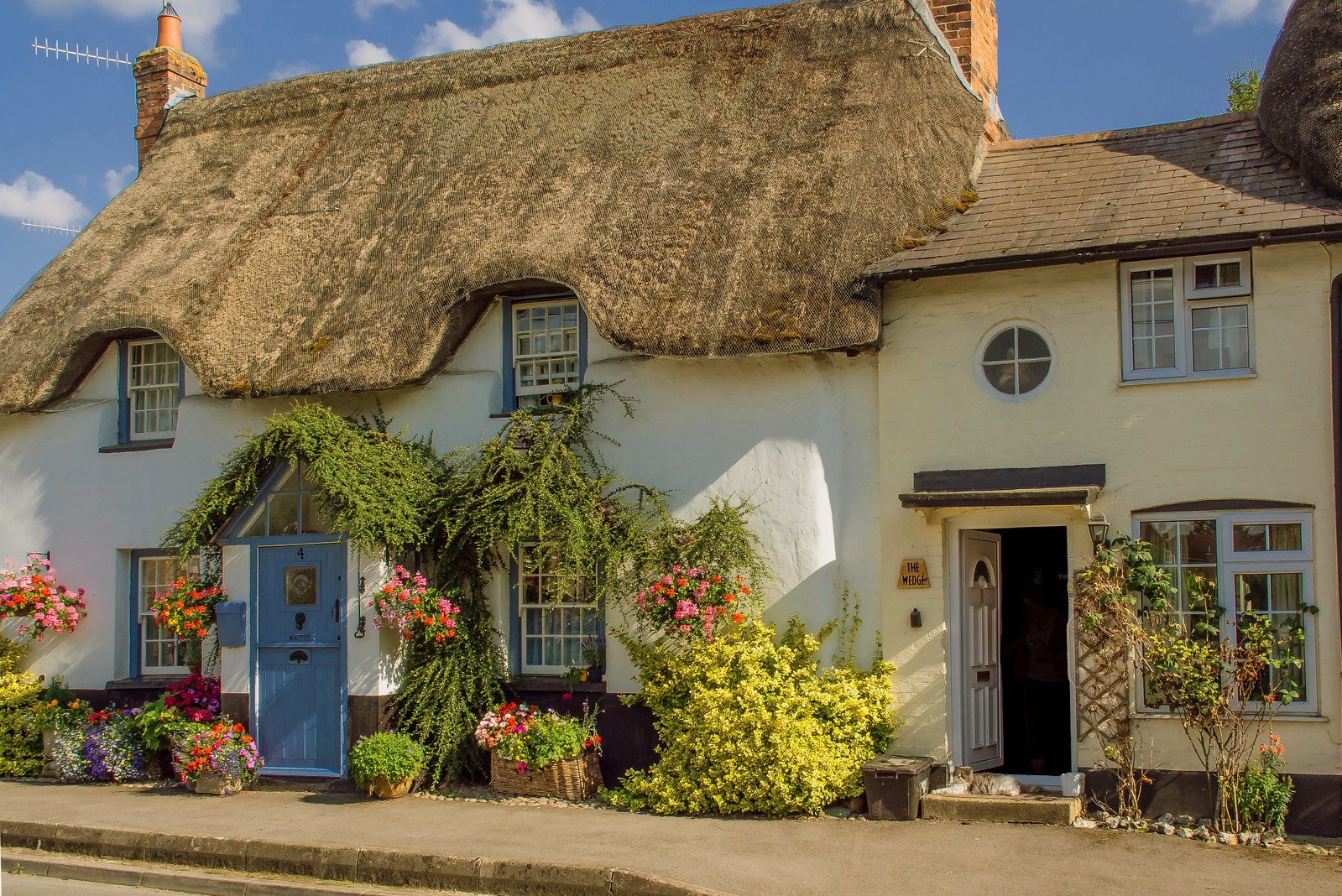
Dorset
With a long history of settlement dating back to the Neolithic era, Dorset is no stranger to invaders, with Romans conquering the Celts, and the first recorded Viking raid on the British Isles in the 8th century.
Invaders of a different kind entered England in 1348 by way of flea-ridden rats carrying the Black Death at the Dorset coastal town of Melcombe Regis.
No wonder it was favored by invaders—over half of Dorset is designated as an Area of Outstanding Natural Beauty, and three-quarters of its coastline is a World Heritage Site.
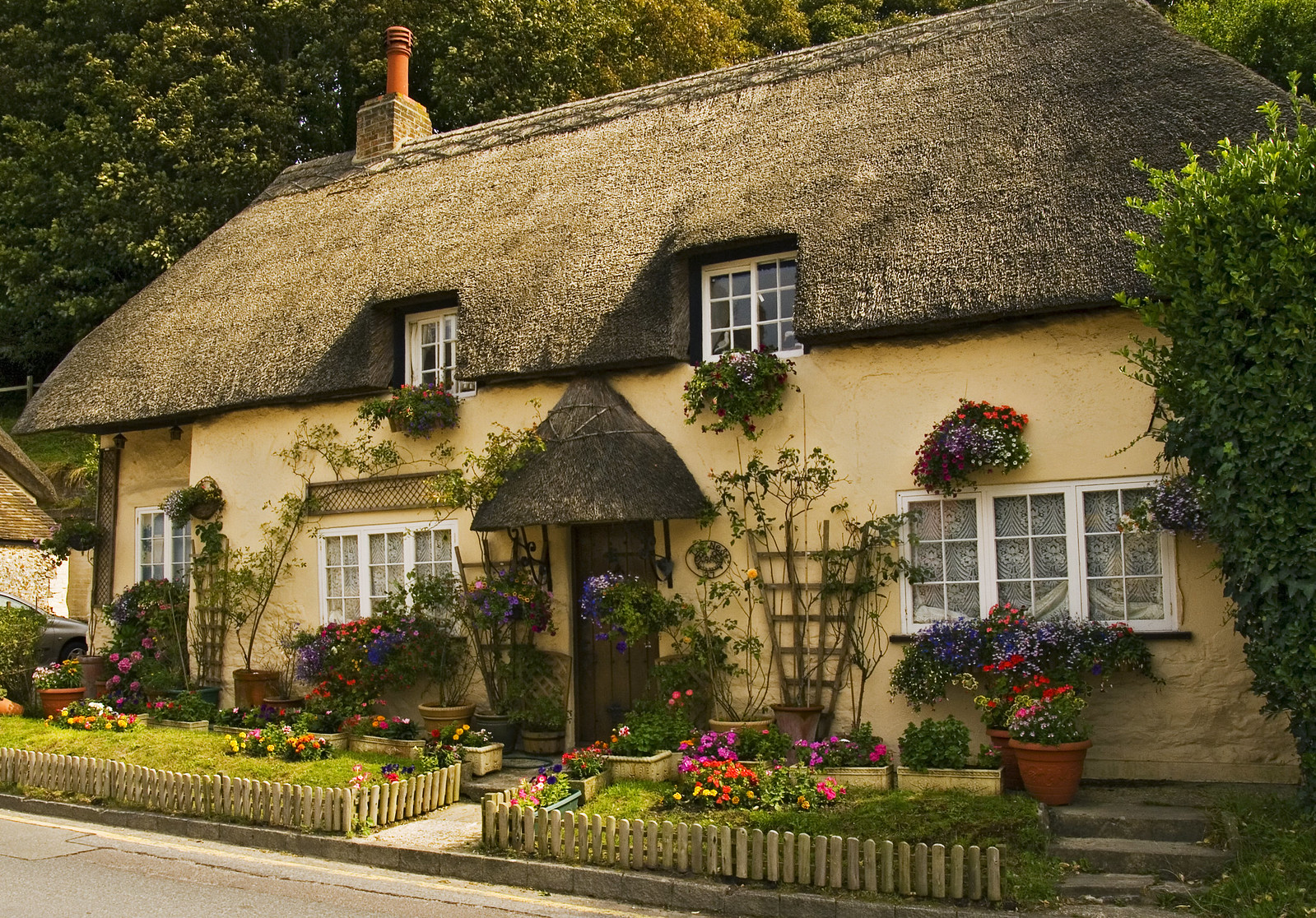
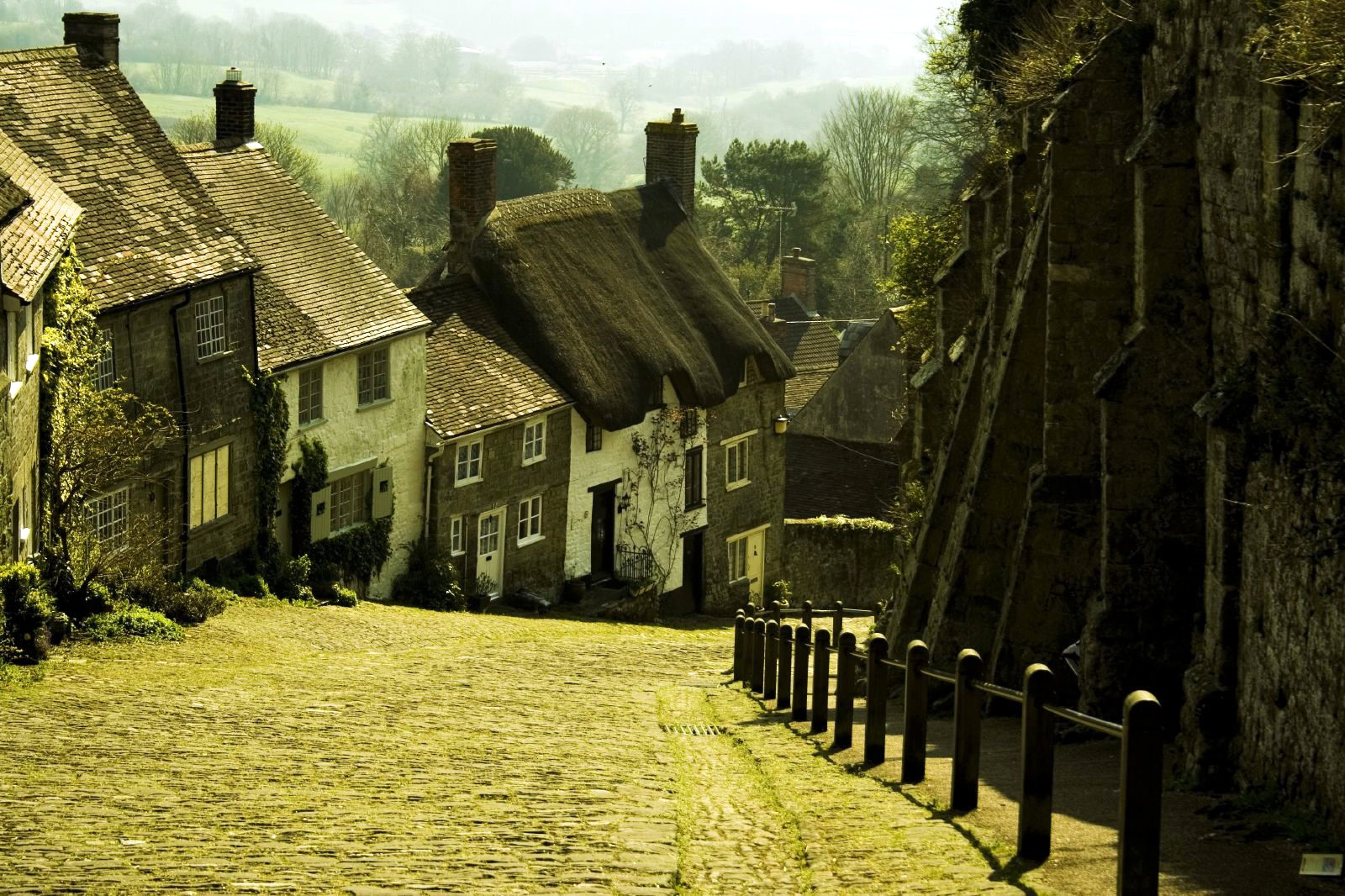
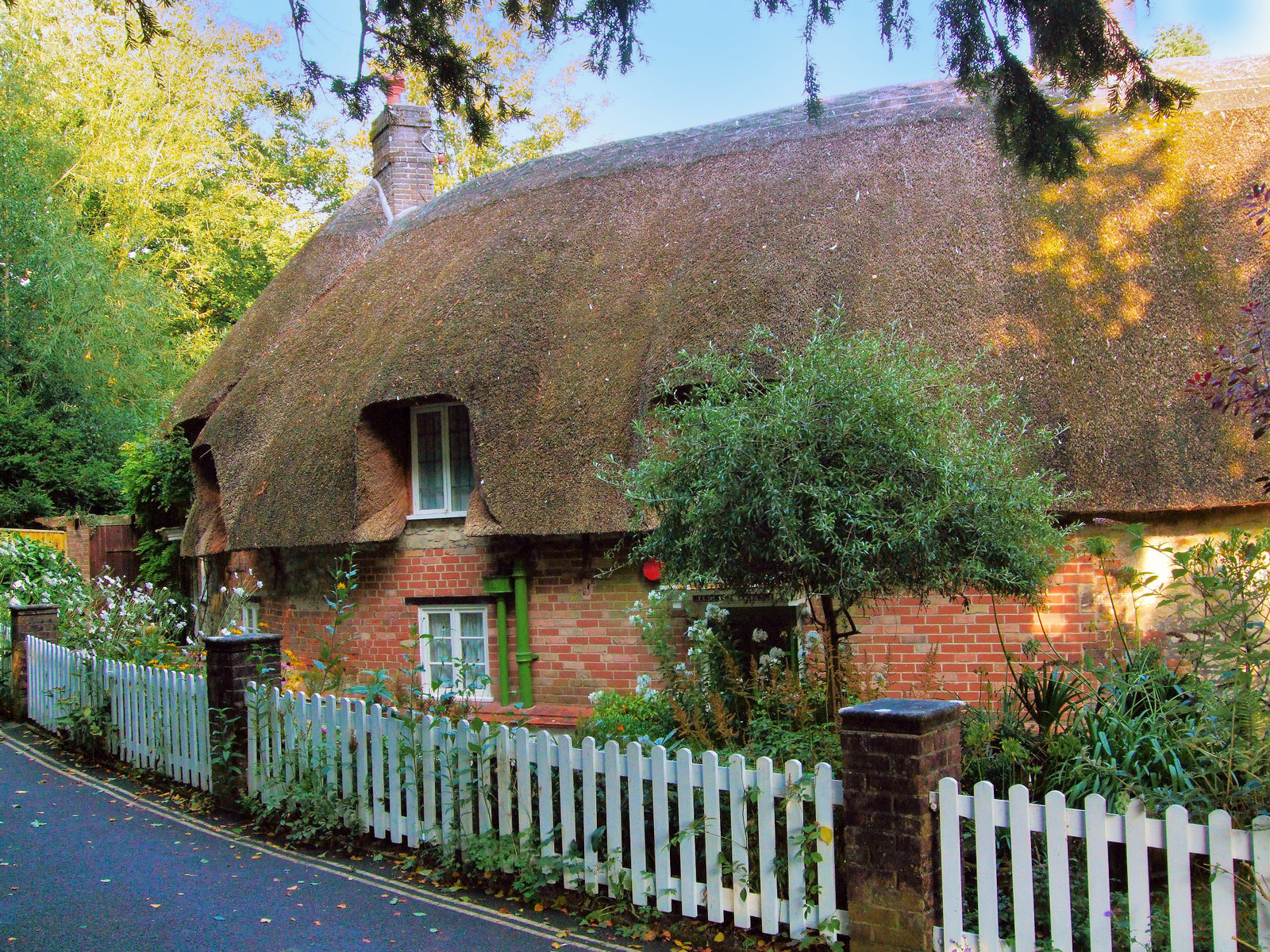
Gloucestershire
Comprising part of “The Cotswolds”—an area of gently rolling hills with golden-colored stone-built villages, historic towns and stately homes and gardens—Gloucestershire is mentioned in the Anglo-Saxon Chronicle—a year by year historical record of life in 10th century England.
The county is steeped in historic buildings from medieval Gloucester Cathedral, Tewkesbury Abbey and the church at Cirencester, to the Tudor Thornbury Castle which was thought so grand that it roused the jealously of a very powerful man—Cardinal Wolsey, who promptly beheaded its builder, the Duke of Buckingham, for alleged treason.
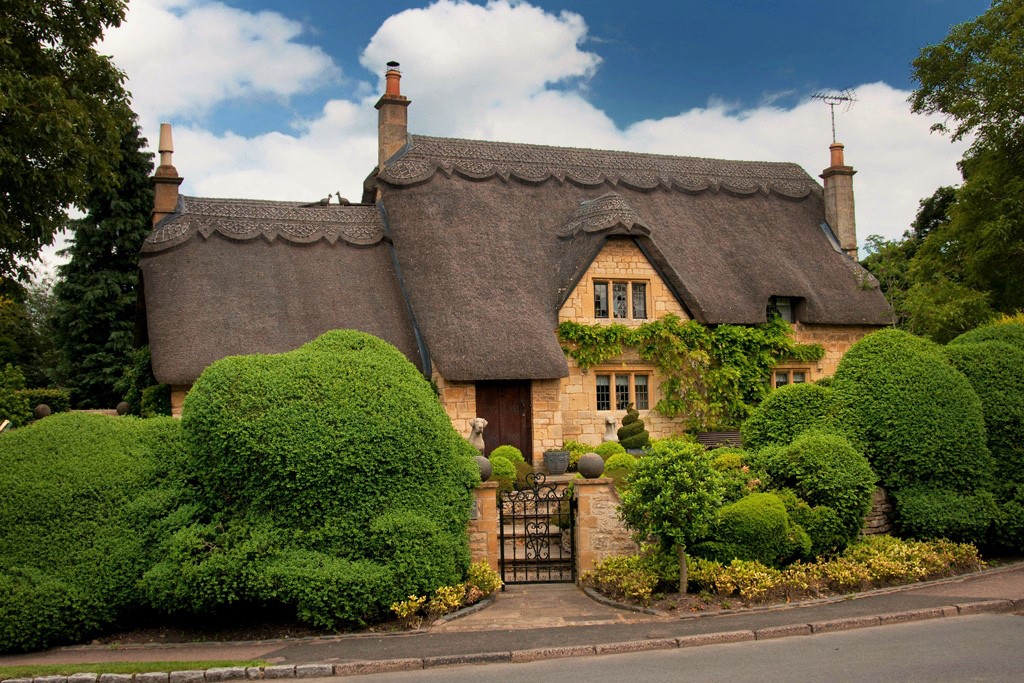
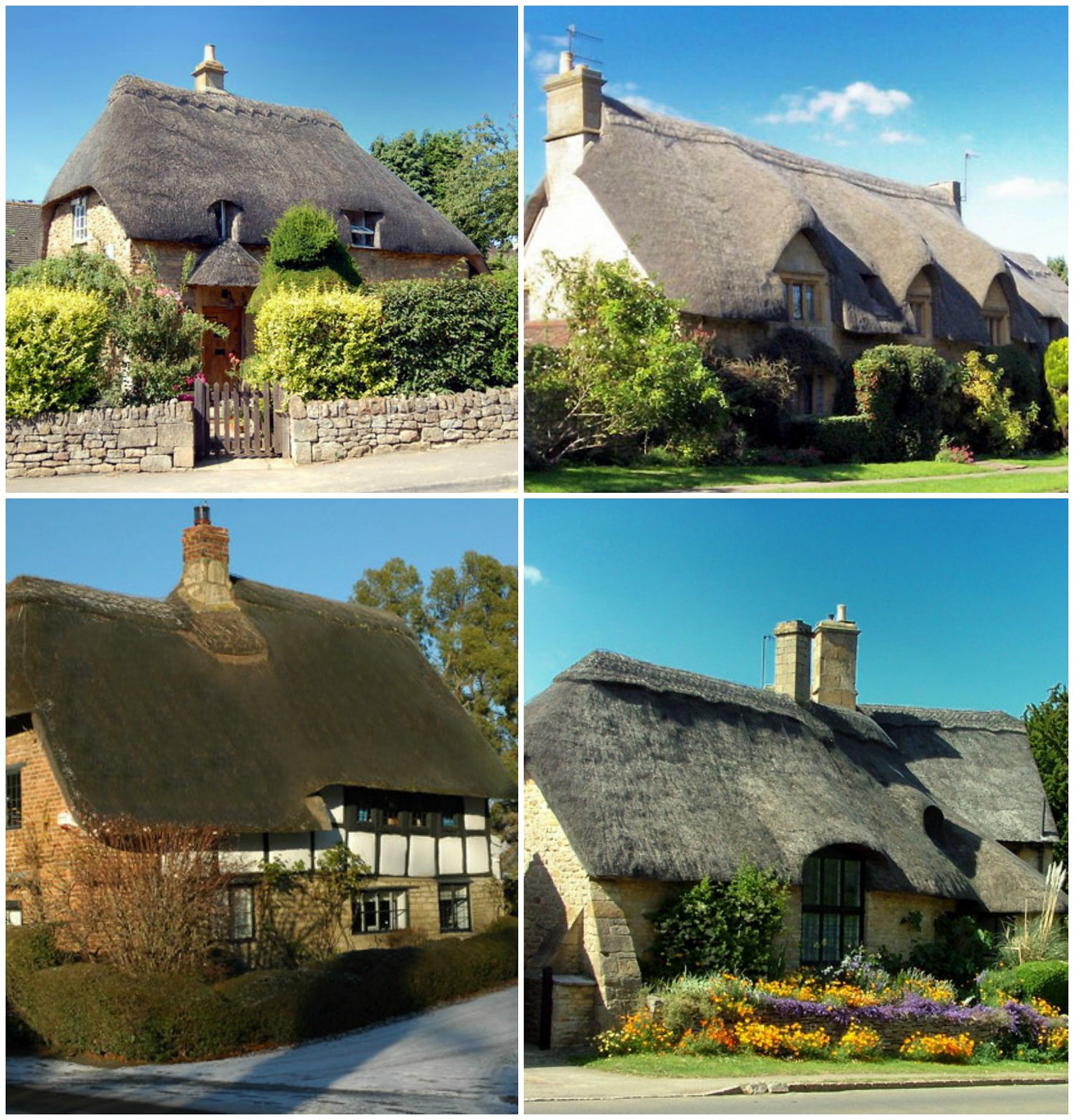
Hope you enjoyed the guided tour of some of England’s loveliest areas and their beautiful thatched cottages.
